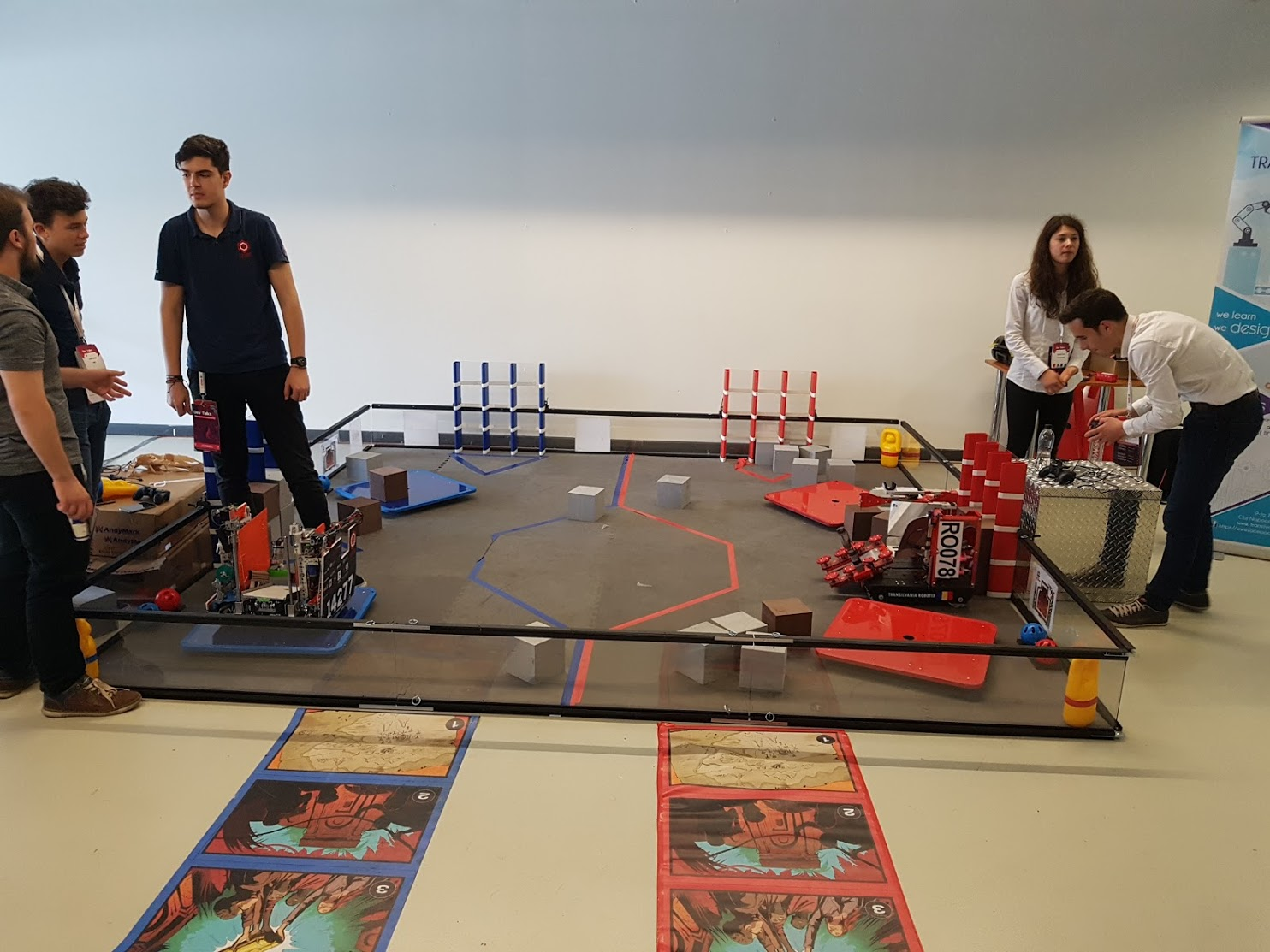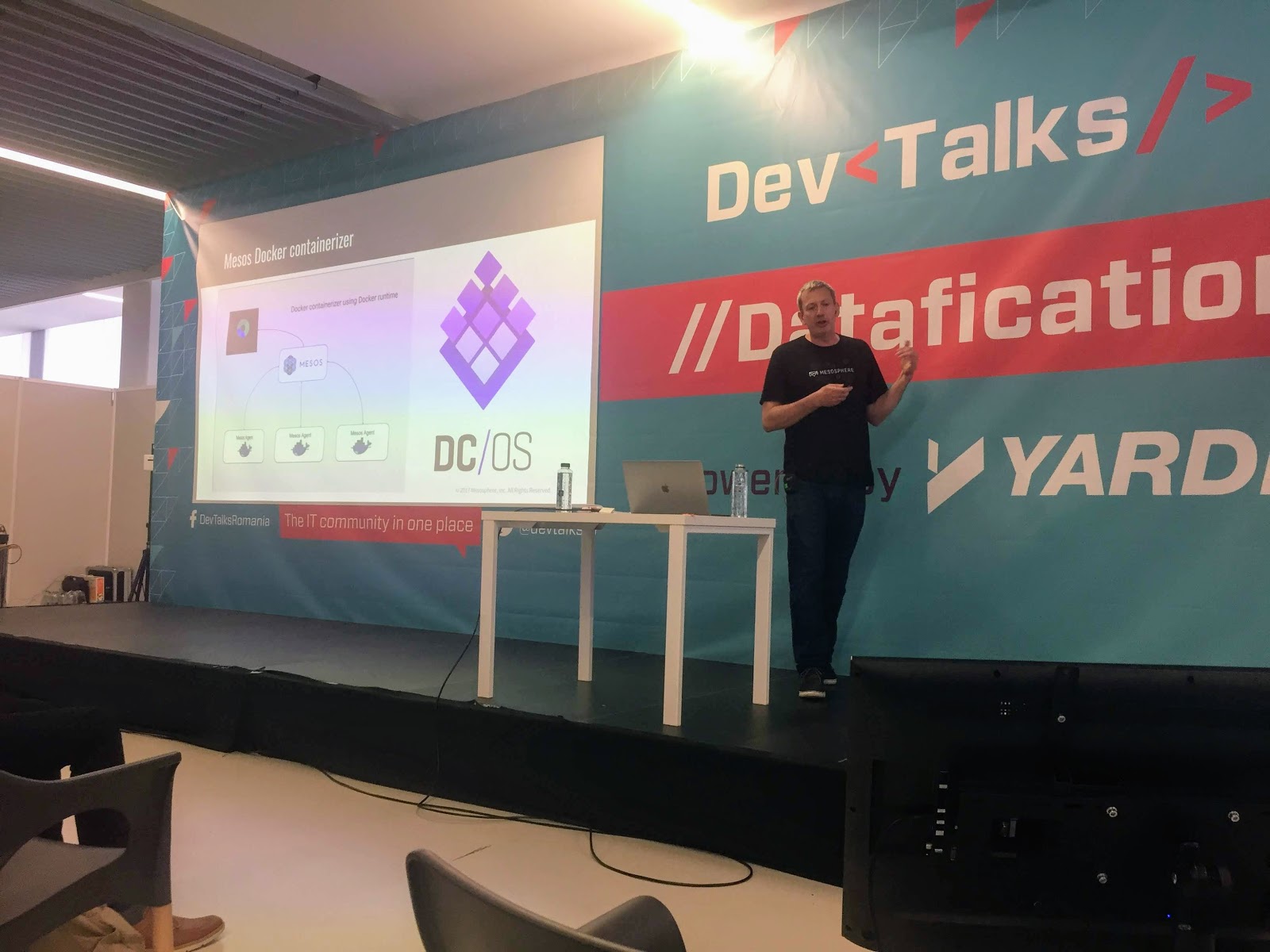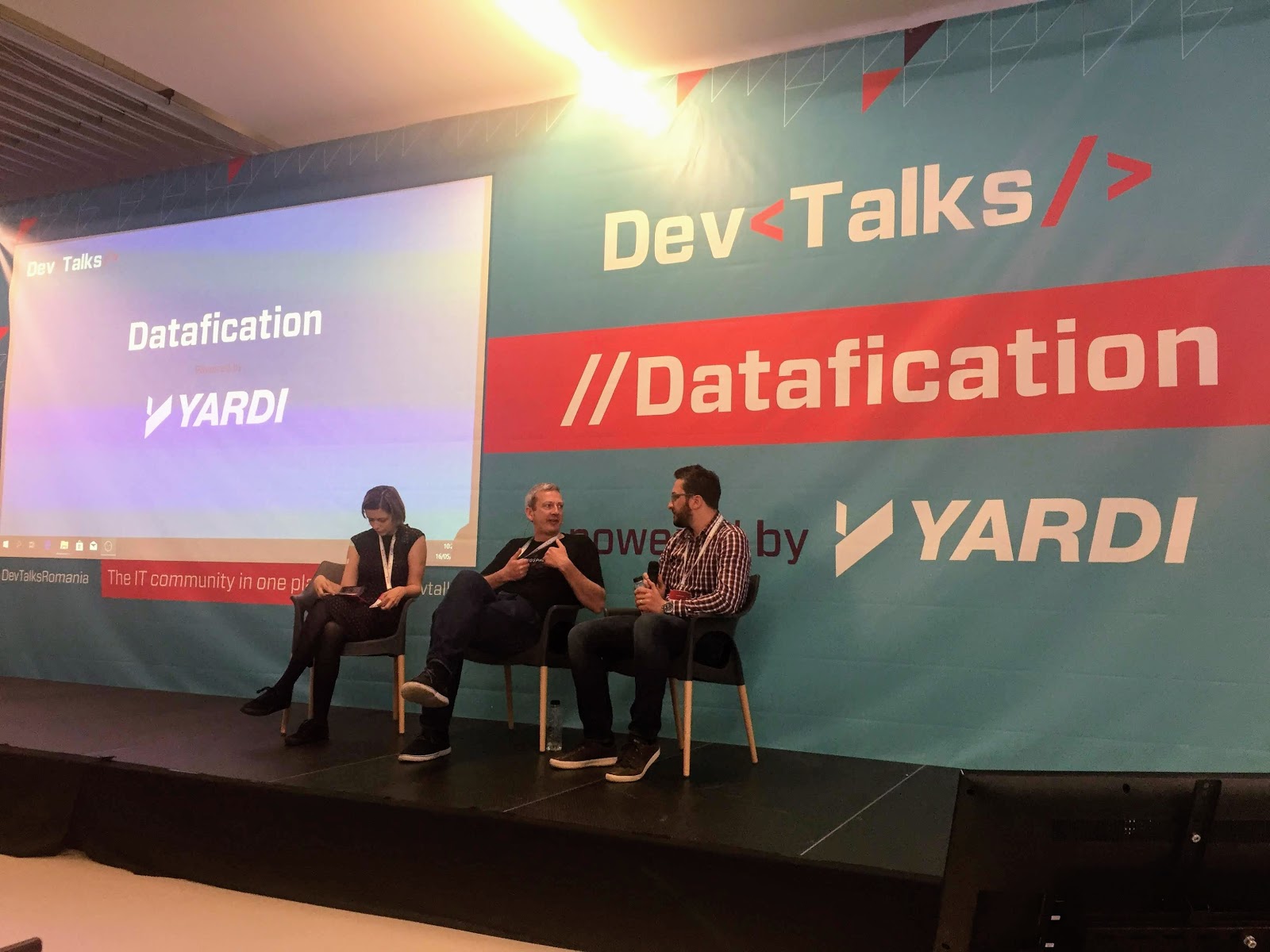This week I returned to Cluj-Napoca in Romania, this time to speak at DevTalks, the largest IT conference in Romania. I was very kindly invited to speak after my last visit, and participated in a panel discussion around the future of big data, and also gave a keynote on Apache Mesos and Mesosphere DC/OS.
Despite its size, Romania has a long history of producing world-class computer scientists, due to it’s high quality education system and great universities. It’s now home to a rich ecosystem and deep expertise in fields such as artificial intelligence, machine learning and robotics, as well as hosting development facilities for many international companies including NTT Data, Bosch, Oracle and IBM.
DevTalks is a twice yearly conference, with events in both Bucharest and Cluj-Napoca. The Cluj event was held in the Polyvalent Hall, a huge events venue in the centre of the city, and attracted over 1000 attendees. The scope of the conference is wide, with separate tracks on Datafication, DevOps, Java, Web and Mobile, Emerging Technologies, Automotive, and Product Management reflecting the diversity in the tech industry around the city. Each of the tracks had their own dedicated area, together with lounge areas, plentiful great coffee, and loads of interesting technology demos, including VR, AR and a robotics obstacle course!

My sessions were in the Datafication track, and the morning session began with an introduction from Andrei Dragomir from Yardi, a US-based global real estate company with a large development presence in Romania, and also a Mesos user. Andrei made the case that big data and analytics now intimately affect all of our lives, as data and data flows increasingly drive our interactions with technology. He also touched on some interesting points about the rising importance of ethical behavior for companies engaged with data.

I then took part in a panel discussion hosted by Ana Bortis, along with Ovidiou Cical from CoSoSys. The panel’s theme was Big Data 2020 and we discussed the future of the field and challenges it will face over the next few years as it grows. I talked about how far these kinds of technologies have come in the last five or six years, from highly specialised into mainstream use, and about how the challenges of large-scale analytics are now problem spaces that every company needs to be successful in to thrive. Ovidiou discussed the challenges around security and ethics in data analytics, particularly in the context of the recent Facebook and Cambridge Analytica scandal. This led to many fascinating questions from the audience, widening out the discussion across artificial intelligence, verifiable transactions using blockchain and quantum computing. It was clear from the quality of the questions and the audience engagement that this is a subject many are thinking about, and it was great to explore this subject so widely. One of the questions was about whether companies outside of Romania are facing these challenges differently, and I was pleased to be able to say that most organisations are on the same learning curve.

In the hallway track I also got to catch up with some of our user community. SDL is one of the global leaders in machine translation, with development based in Cluj. Their next generation neural network based translation engine is built on open source DC/OS, and I had some great discussions with their team on their roadmap and feature requirements. As SDL scale their neural network platform, they are particularly interested in sharing GPUs across AWS GPS-based instances due to their high cost. We also talked about the merits of alternative packing algorithms that in certain use cases would more efficiently allocate their overall cluster resources. Look for more details of how SDL use DC/OS in an upcoming user case story we’ll be publishing later this year.
This year there was also a startup conference, enabling early stage companies to present to attendees, and to network with investors and mentors. There were several interesting companies with booths here, including ChainCreator , a blockchain platform, ParkingSpotter, a video analytics startup to better manage large car parking facilities, and TypingDNA , a Tech Stars NY alumni in the field of biometrics. TypingDNA’s software uses machine learning models to analyse how we type our username and password, enabling it to very accurately to tell if we really are who we say we are. It’s fascinating stuff that I can vouch does actually work – it’s surprising how predictable we are! I spent some time with Cristian Tamas from TypingDNA, sharing our experience of community building and developer evangelism.
In the afternoon session, we heard more from SDL, with Adrian Ivan talking about how they are using Kubernetes and Spinnaker for continuous delivery of container based microservices. Continuous integration and continuous delivery are spaces many organisations are trying to master, as I saw recently at Kubecon in Copenhagen, and the combination of Spinnaker and Kubernetes, along with Jenkins, is a great solution to this problem. Those tools are, of course, available in the DC/OS catalog, enabling users to very easily deploy and scale them.
Following on from Adrian, my talk for this conference was titled “From Batch to Pipelines – Why Mesos and DC/OS are a Solution for Emerging Patterns in Data Processing, and I discussed how modern application architecture is typically made up of multiple complex distributed systems, adding growing complexity to application lifecycle management. By using DC/OS and the power of Mesos frameworks, we can abstract away the underlying substrate and manage the operational complexity, enabling operators to easily build, deploy and scale complex applications.
The final afternoon sessions included Alvin Ourrad from BBC News Labs, picking up again on the theme of ethics and privacy in data analytics, Steve Poole from IBM talking about Java 9 and its benefits for running in cloud platforms, and Georgi Kodinov from Oracle introducing the new features of MySQL 8.0.
I very much enjoyed returning to Cluj for DataTalks. I’m looking forward to returning next year, and hopefully will be able to make the Bucharest event too. Thanks to Andreea Balacci and the team at DevTalks for inviting me!